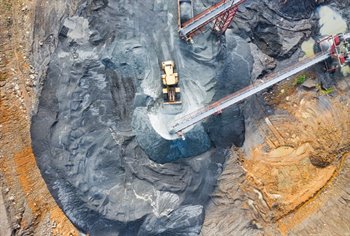
Mining is a very underappreciated industry, with very controversial backlash. When in reality, mining is how we have come to acquire most of our minerals and power sources. When done properly, it can be both environmentally safe and have a positive outcome for the world’s population. Think about it, where do you think gas and oil come from? Geothermal energy? Materials needed to build any infrastructure? When it comes down to it, we need mining to survive. Let’s discuss the different types of mining and why we use them.
Sometimes the minerals or power sources we need are way below our Earth’s surface, drilling down to retrieve it is known as vertical mining. This is done through creating declines to reach the ore bodies or shafts to help facilitate the movement of the resource. Commonly used to acquire hard minerals such as gold, silver, iron, gems, and much more.
When resources are found in a hill, or mountain, or close to the surface, we use horizontal drilling to reduce danger and costs. This is done through Adits, when it is believed to have no use for a shaft or decline. This is commonly used for minerals and rocks, such as coal, clay, gravel, granite, limestone and much more.
With every mining company focusing on the situation at hand, there are a few different techniques that can be used to avoid certain negative outcomes. Following are a few techniques commonly used.
This is one of the more expensive methods but usually results with low ore loss. Similar to the shrinkage and stoping method, the ore is mined through horizontal or inclined drilling, followed by filling with waste rock or concrete.
Similar to the cut and fill process, once blasted, wasted ore is left behind. Only enough is removed to be able to continue moving forward with the process. Emptied only when all the ore has been removed.
The Vertical Retreat Method is used when a mine is divided between different vertical zones. Cleaning of the ore is done through remote LHD machines. The stopes are filled with cement to create better supporting walls.
Looking for the right materials? Contact Plastech Plus and let us help you find exactly what you need.